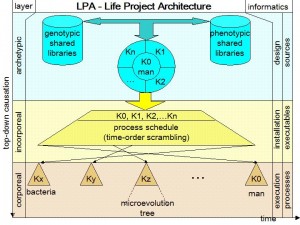Newton on Intelligent Design
Most people are aware that Sir Isaac Newton believed in God. But it may come as a surprise to many readers to learn that he was also an Intelligent Design advocate. What prompted me to write this post was a recent comment by Genomicus that while Newton’s remarks on the Bible were interesting, they were “irrelevant to the hypothesis that life was engineered by some intelligence(s).” Genomicus will be interested to know that Newton explicitly argued that all of the various kinds of living things in Nature were personally designed by God. For those wanting to know more about Newton’s views on God and science, I would heartily recommend an essay by Stephen Snobelen, a professor of the history of Read More ›
